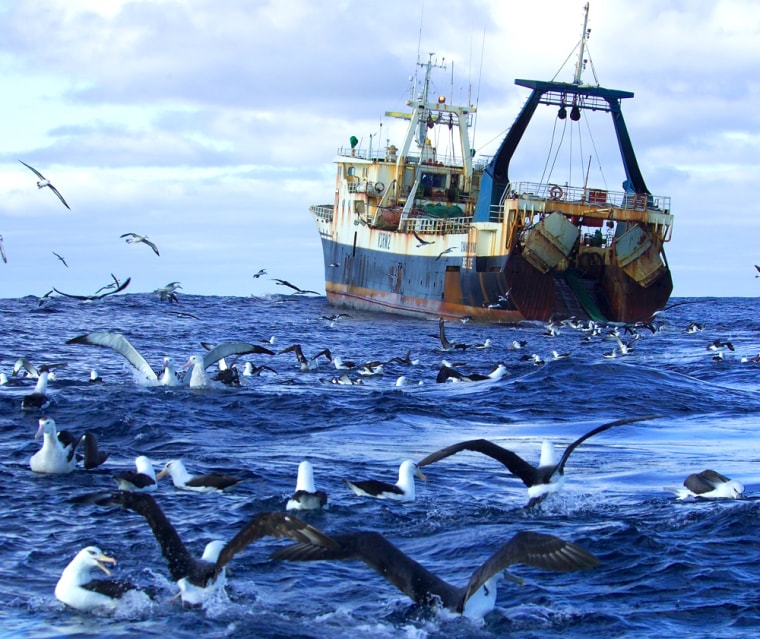President Bush called for a halt to all types of destructive fishing on the high seas Tuesday, saying the United States will work to eliminate practices such as bottom trawling that devastate fish populations and the ocean floor.
Bush’s memo directs the secretaries of the State and Commerce departments to promote “sustainable” fisheries and to oppose any fishing practices “that destroy the long-term natural productivity of fish stocks or habitats such as seamounts, corals, and sponge fields for short-term gain.”
The memo also said the United States would work with other nations and international groups to change fishing practices and create new international fishery regulatory groups if needed.
While Brazil, Chile, Germany, the Netherlands, South Africa and, now, the U.S. have expressed support for regulating bottom trawling on the high seas, Spain, Russia and Iceland are among those that oppose it.
The U.S. allows but regulates bottom fishing in U.S. waters. The practice involves boats dragging huge nets along the sea floor scooping up orange roughy, blue ling and other fish while bulldozing nearly everything else in their path.
“It’s like clear-cutting the forest to catch a squirrel,” said Joshua Reichert, head of the private Pew Charitable Trusts’ environment program, which has been leading an international coalition of more than 60 conservation groups seeking to halt the practice known as bottom trawling on the high seas.
U.N. to discuss ban
This week, the groups and some U.S. senators hope to persuade the United Nations to ban bottom trawling anywhere that it’s unregulated. U.N. negotiations over high seas fishing start Wednesday in New York.
The 192-member U.N. General Assembly will debate an Australian-led plan to ban deep sea bottom trawling in unmanaged high seas and to impose tougher regulation of other destructive fishing practices.
The European Commission, executive of the 25-member European Union, has said it would support a ban on deep sea trawling. U.N. General Assembly resolutions are nonbinding, but they reflect the will of the international community.
About 64 percent of the world’s ocean is in international waters, of which about three-quarters is unmanaged, according to the Pew Institute for Ocean Science.
As mainstay species like cod and hake become depleted by overfishing, deepwater species with names such as forkbeard, orange roughy, black scabbardfish and roundnose grenadier are an attractive catch as trawlers move to new fishing grounds.
A bottom trawl is a cone-shaped net that is towed by one or two boats across the sea floor, as much as 1400 yards below the surface, its pointed end retaining all the fish that are scooped up.
It can cause damage to extremely slow growing ecosystems, particularly coral reefs, and also depletes other marine life that is captured by the nets.
Australia sees 'dismal' protection
“The global picture in relation to conservation of the marine environment is a dismal one,” said Australia’s ambassador to the United Nations, Robert Hill.
The organisms that live in the benthic regions — on the bottom of the sea — can survive without light and tolerate low temperatures. The World Conservation Union said between 500,000 and 100 million species are thought to inhabit these areas.
A Greenpeace report in March said that 40 percent of the world’s oceans should be placed in nature reserves. Just 0.6 percent of oceans are protected reserves at present, compared with 12 percent of the world’s land, according to U.N. data.
“We do know very little about the deep sea, but what we do know suggests that it is the largest, most biologically rich place on this earth,” said Ellen Pikitch, executive director of the Pew Institute for Ocean Science.
“If the United Nations does not take action now, I believe we will see a tragic and unprecedented loss of life before we even have the chance to see it, to know it, to describe it.”
